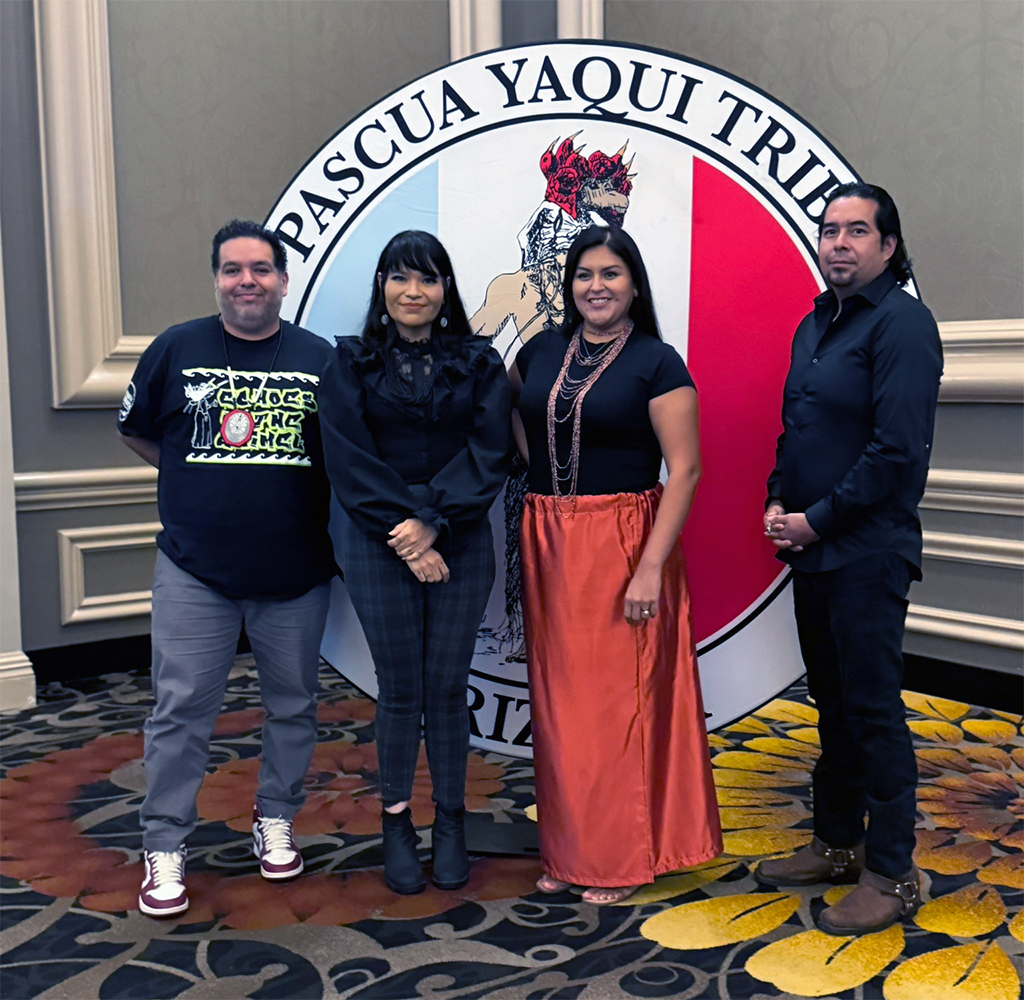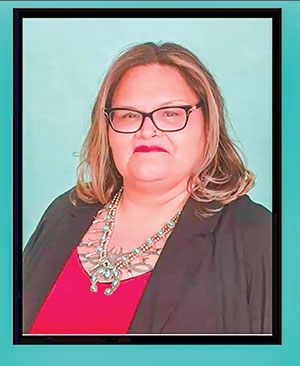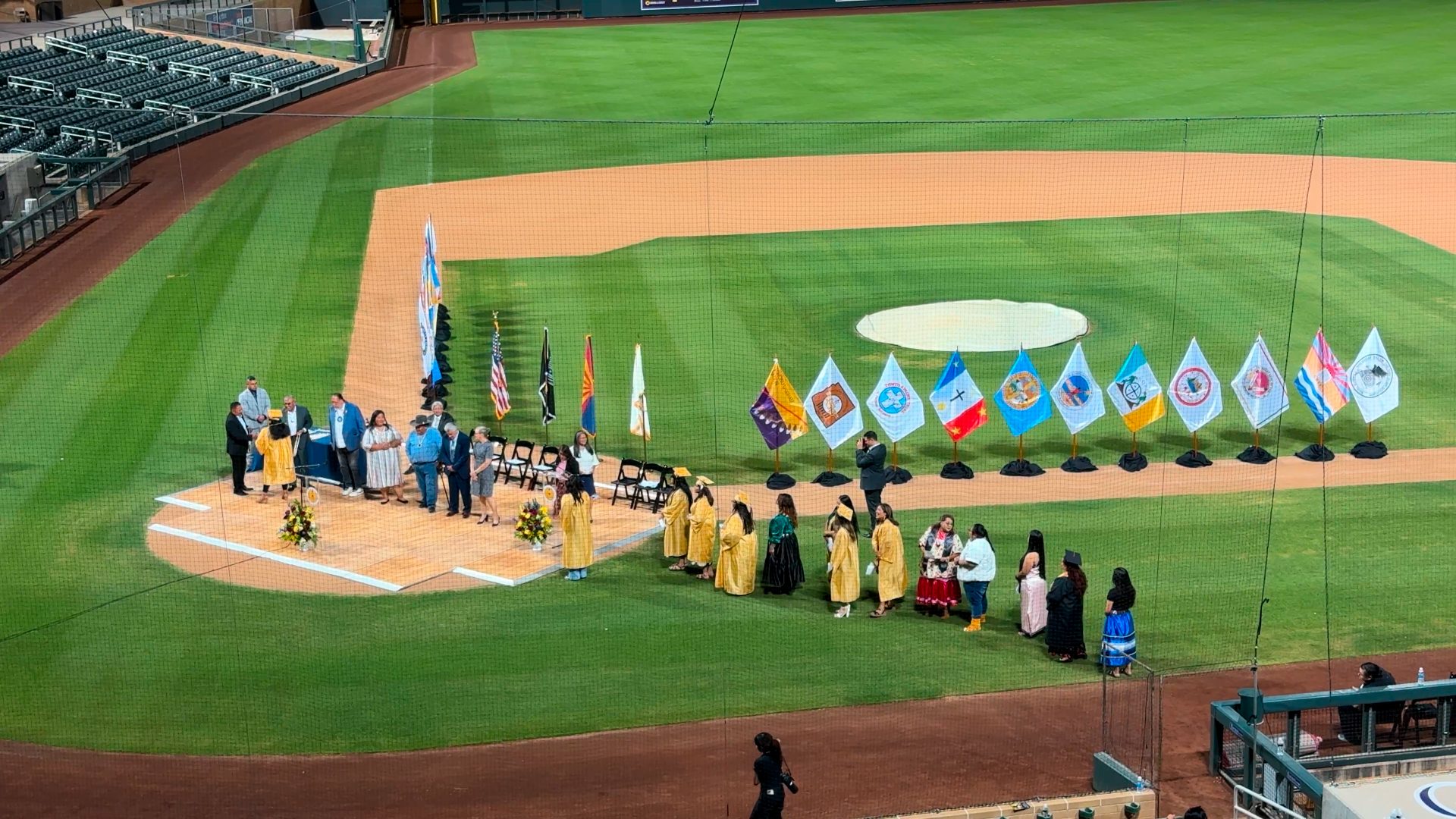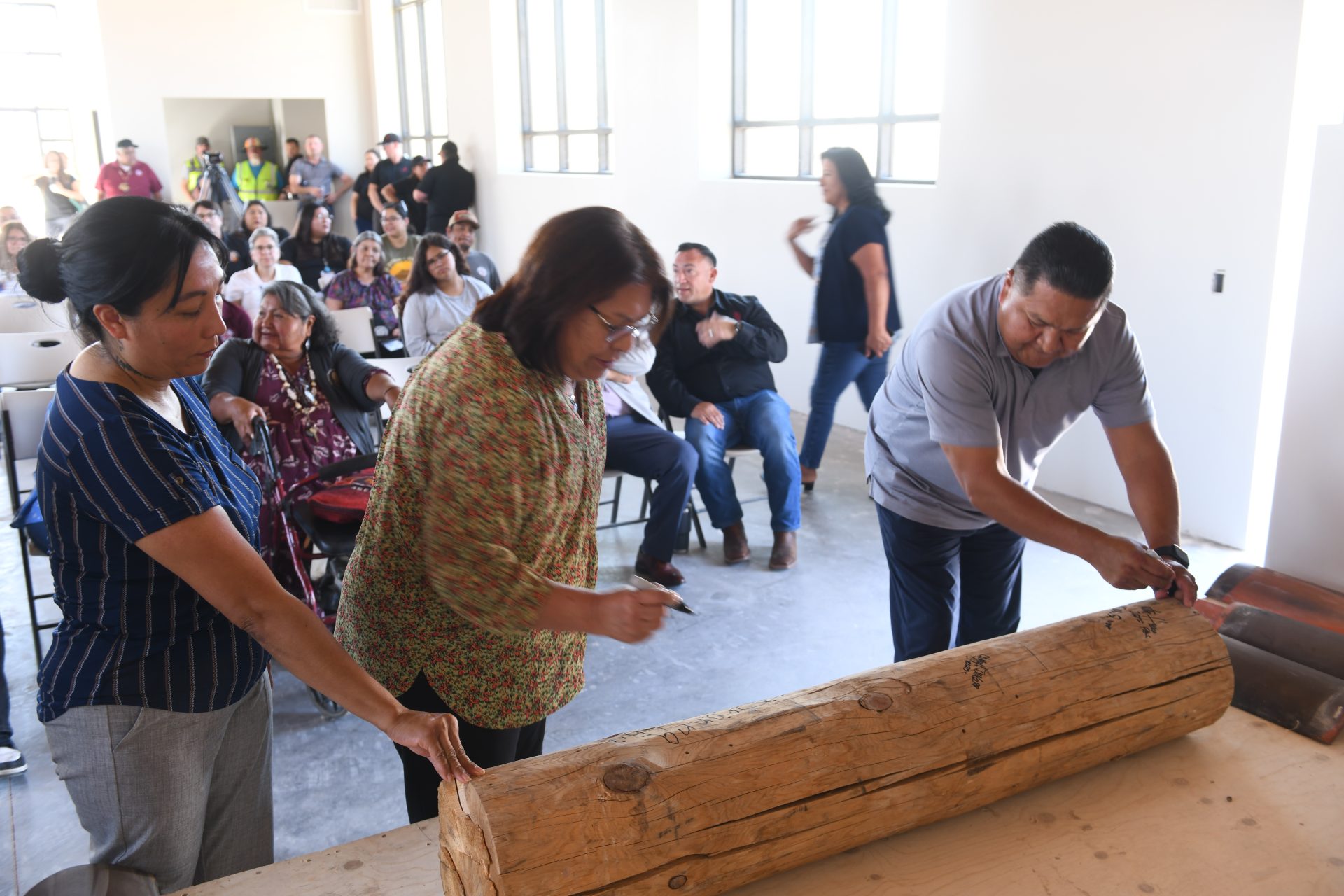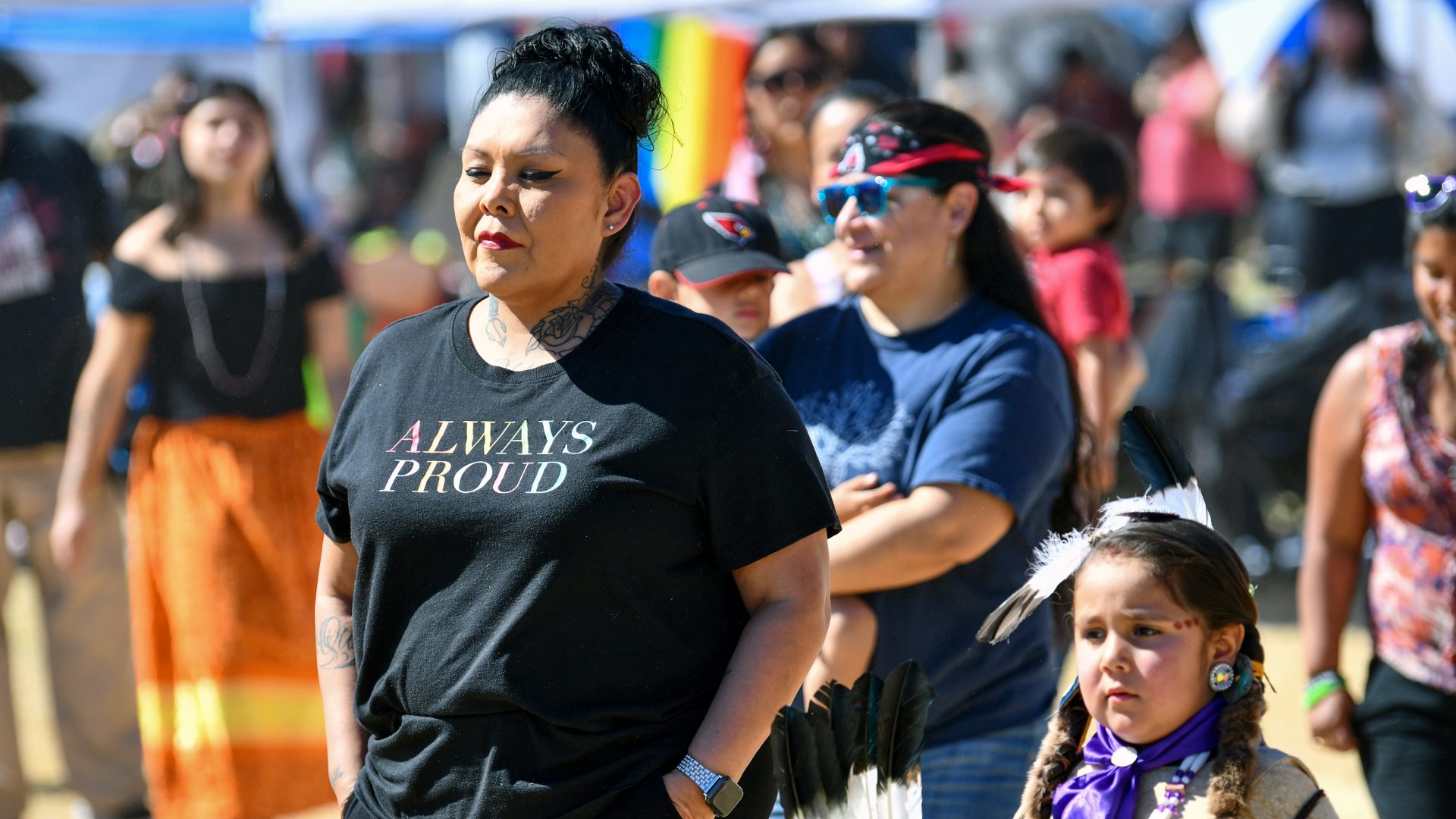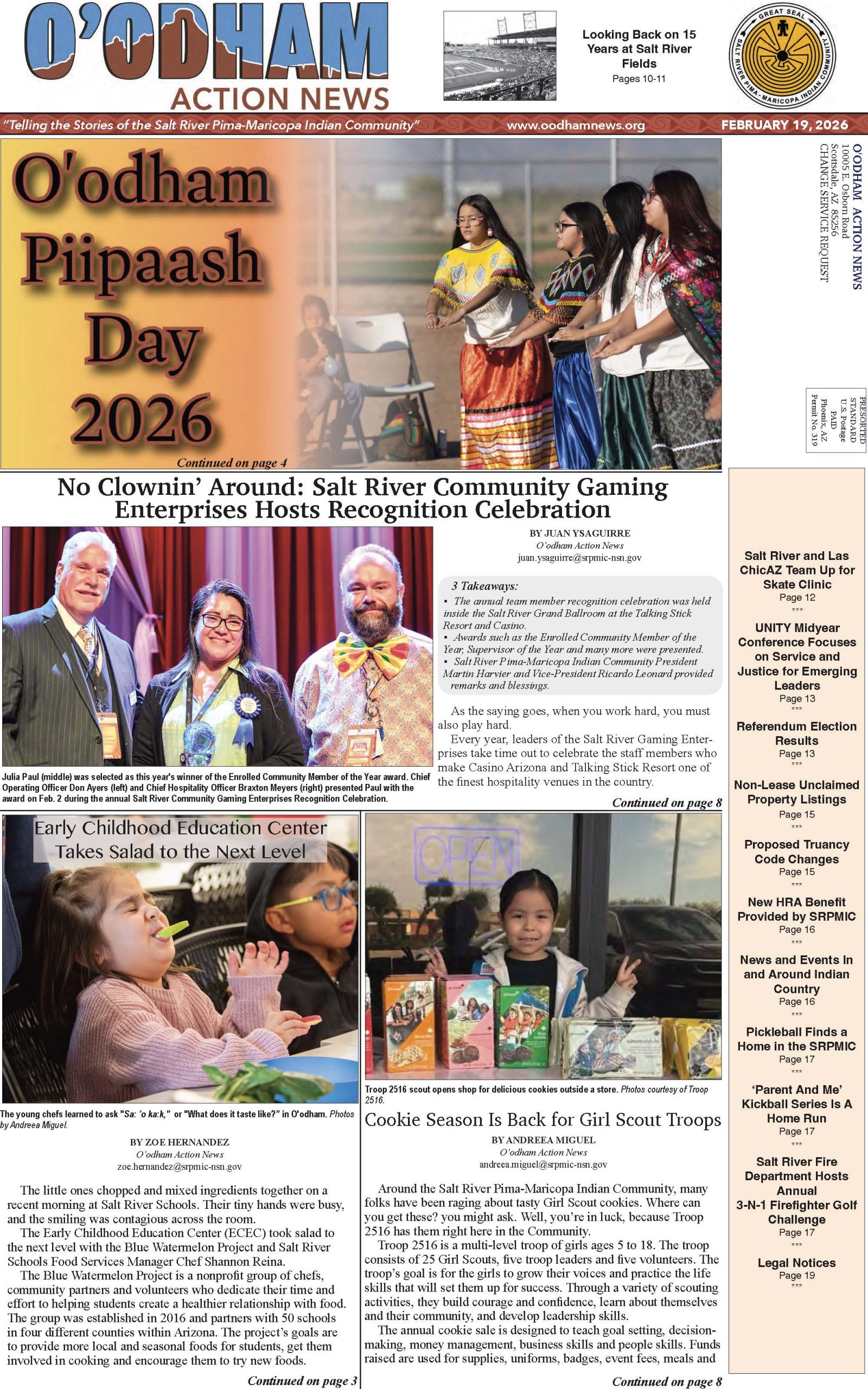VIEWS: 756
October 17, 2025SRPMIC Youth Services Staff Present at ICWA Conference
3 takeaways:
- Enacted in 1978, the Indian Child Welfare Act responded to the crisis of the forced removal of Native children from their families and communities at alarming rates of 25% to 35%, with 85% being placed outside their families, even when relatives or tribal members were available to care for them.
- This year, the Pascua Yaqui Tribe hosted the 8th Annual ICWA Conference at the Casino Del Sol Resort in Tucson.
- Six staff members from Salt River Pima-Maricopa Indian Community Youth Services made a presentation to conference attendees.
In mid-August, six staff members from the Salt River Pima-Maricopa Indian Community traveled to the Casino Del Sol Resort in Tucson for the eighth annual Indian Child Welfare Act (ICWA) Conference, hosted by the Pascua Yaqui Tribe. Nearly 300 representatives from various tribes attended.
Mylo Smith (Crow Creek-Dakota) served as the emcee for the conference. Smith is a comedian who has spent the last 18 years drug and alcohol free. Elisia Manuel, founder and executive director of Three Precious Miracles, was the keynote speaker.
SRPMIC Youth Services Director Tori Paukgana, Assistant Director Brian Yazzie, Program Manager John Paul Saspe, Youth Development Specialist Natasha Martinez, Youth Development Culture Specialist Isaac Lopez and Youth Development Specialist Alyssa Rodriguez presented during the four-day conference.
“My passion is working with the youth and helping to teach our culture. I shared how I want to continue to create a safe space for the youth to connect with their roots and feel proud to be O’odham and Piipaash,” said Rodriguez.
Saspe echoed similar remarks. “I’ve learned so much [over] these past years; we wanted to share what we have learned to help others create their own initiatives.”
The conference featured several breakout sessions that covered an overview of the Pascua Yaqui Tribe origins, boarding schools, protecting tribal advocacy, case updates, ethical issues involving the implementation of artificial intelligence in the practice of law, as well as sessions in flower-making, an art that has cultural meaning for the Pascua Yaqui Tribe.
The staff from SRPMIC Youth Services networked with representatives of fellow tribes as they provided updates on all things related to the SRPMIC.
“We wanted to share the connections we have made with our Community and youth, and also the amazing things that can come out of collaboration when we put our resources together!” said Paukgana.
Rodriguez added, “We started from nothing, and building what we have now has not only made a difference, it’s become a blueprint. Speaking at this year’s conference was important to us because it gave us the chance to share that journey, to show what’s possible when you invest in youth art and culture initiatives. It was an opportunity to uplift our Community’s voice and hopefully inspire others to create similar spaces of growth, creativity and connection.”
On day four, the Youth Services team presented to conference attendees about their most recent art activity, this past summer’s “Echoes of The Akimel Murals & Youth Identity” event.
“Art and culture programs are more than just activities,” said Martinez. “They are pathways for our kids to discover who they are and build a sense of belonging. The core message of my presentation at the ICWA conference was about the transformative power of art for our youth. All the work I put into the art program comes from a genuine place of wanting to support young people and be a positive mentor.”
She added, “I’ve been using my voice to advocate for art programming as a way to show [youth] what’s possible, helping them build confidence, connect with their identity and see new opportunities through creativity.”
Lopez shared that the team was nervous to present at first. However, the department’s passion and drive to represent the SRPMIC well took over and eliminated all nerves when it came time to present.
“Being able to be ourselves and who we are brought it all together with our passion for what we do,” he said.
Now looking toward the future, members of the Youth Services team revealed they were proud to attend this year’s ICWA conference because they all have the same unified goal: learning how to better help our future leaders in the SRPMIC.
“We need to get the message out that foster families are needed and are so important to being part of the solution when youth are removed from their homes,” said Saspe.
Rodriguez shared, “We want readers to know how important it is to invest in our Community’s youth, because they are our future leaders. Programs like these don’t just support the kids, they uplift families and strengthen the entire Community. We hope that the work we’ve done through our art and culture programs can serve as a model for other tribal communities. Most of all, we want people to know that we truly love what we do, and we support our youth with big hearts.”
The Youth Services team would like to thank the following departments, families and individuals for their assistance and collaboration: the Casey Family, SRPMIC departments, SRPMIC administration, Amy Davila and the Youth Services staff and families.

